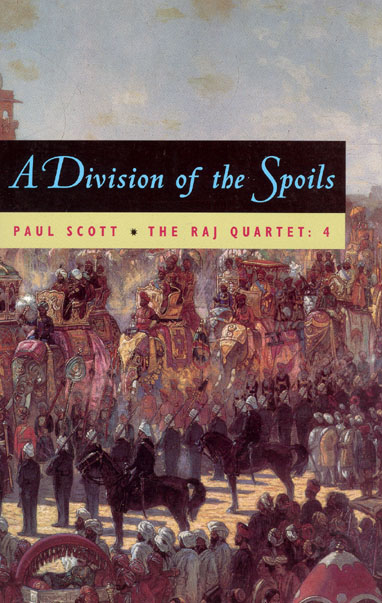


One of the most striking features of The Raj Quartet is its verisimilitude. That said, Scott is far from being a fabulist.

The catch here is that the value of a novel or short story (whatever the setting) depends on the writer´s handling of its structure, language, tone, rhythm and so forth, which necessarily forces him to bend its personages and events to the exigencies of a riveting and convincing story. But when it comes to the motives and inner lives of those who are the makers or victims of history, the historian can only make intelligent guesses, whereas the novelist is free to enter into their minds and assert rather than speculate. Ultimately, history is or should be a branch of literature whose aim is to enlighten us about the human condition. True, any historian worth his salt does not restrict himself to compiling ascertainable facts. Now, one has to be wary about using fiction as a guide to history. While comparable to Kipling and Forster as a scrutiny of the British adventure, what makes it a classic is that, going beyond its particular setting, it stands as one of the finest treatments of the generalized upheaval and sense of malaise that has afflicted the post-Imperial world since then. Farrell Orwell´s Burmese Days, which is not cheating, since Burma was administered from Delhi up to 1937 and it is “a portrait of the dark side of the British Raj” and Midnight´s Children, by the Indian-born but practically British Salman Rushdie.įor the purposes of this discussion of the causes and consequences of the Partition of India, I focus on a (regrettably underrated) masterpiece of the genre, Paul Scott´s The Raj Quartet, a series of four long, complex and interconnected novels, set in the last years of British India. Forster´s A Passage to India, and a little below (in terms of literary merit) the novels of John Masters (among others), not forgetting several outliers: the excellent but relatively little known The Siege of Khrishnapur by J.G. I limit myself, in this case, to authors on the British side of the divide, rather than Indian ones (or those from Pakistan or Bangladesh), because, while some write in English, I know nothing of their work.Īt the top of the list, we find the novels and stories of Kipling and E.M. Like the grit which makes the oyster give birth to a pearl, the friction between East and West in India has created some memorable works of fiction.


 0 kommentar(er)
0 kommentar(er)
